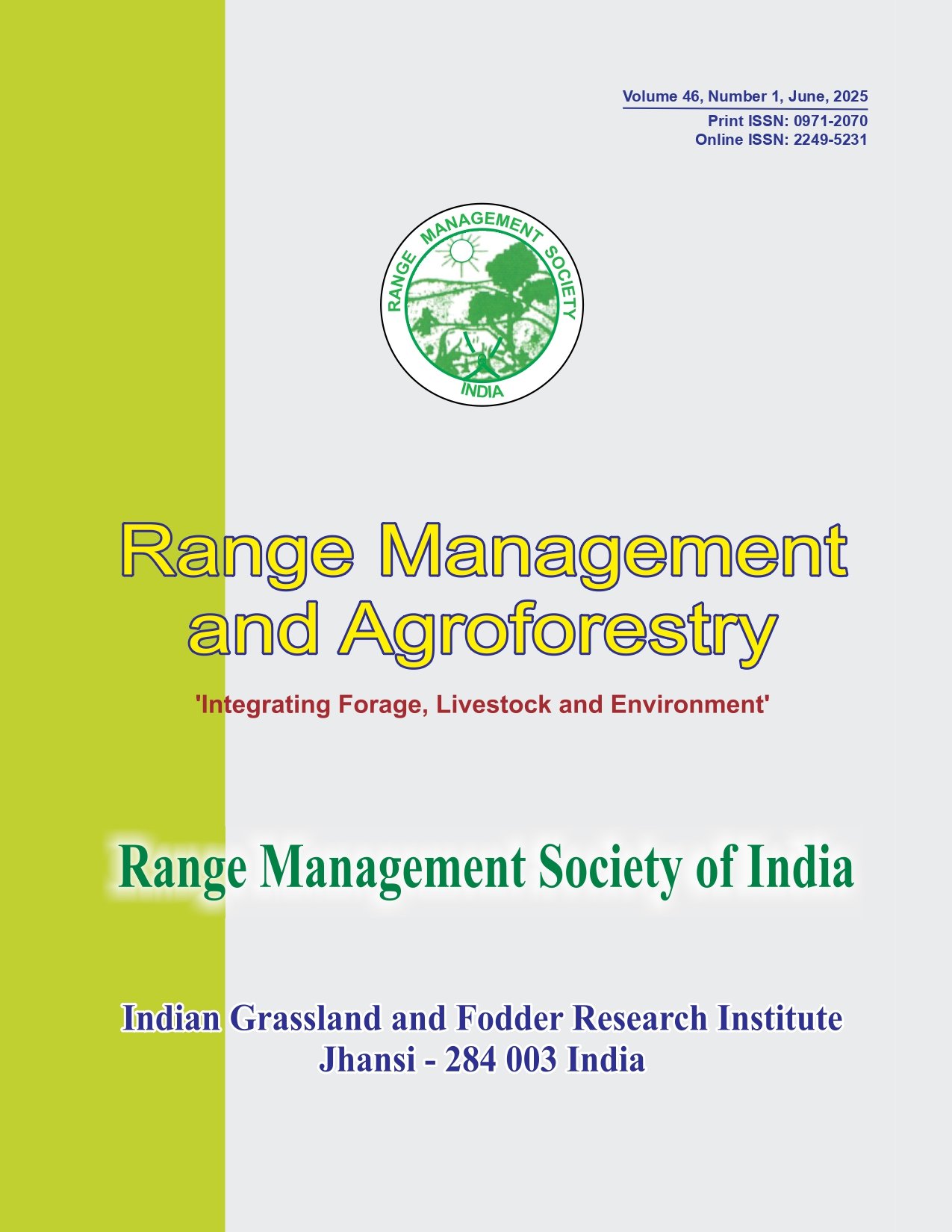Predicted farmer uptake of new agricultural practices: case of silvo-pastoral technologies in Rajasthan, India
Keywords:
ADOPT, Adoption, Farmers’ practices, Silvo-pastoral technologies, SmallholdersAbstract
The study aimed to assess the rate of adoption of silvo-pastoral practices and identify main constraints that limit their adoption in Rajasthan, India using adoption and diffusion outcome prediction tool (ADOPT) in 2015-16. Focus group discussions (FGDs) involving farmers and technicians/researchers focused on discussing four categories of influence on adoption. Farmers’ FGDs predicted that the peak adoption rate for any silvo-pastoral practice in the target area would be 95% after a period of 19.3 years (27.6% and 78.4% after 5 and 10 years, respectively). However, this predicted peak is expected to be around 95% after 14.3 years based on technicians and researchers’ FGD (with a maximum predicted level of adoption for about 48% and 91.8% after 5 and 10 years, respectively). The constraints limiting adoption were highlighted as lack of knowledge, technical information, socio-economic limitations (benefits are not quick in the short-term and are labour intensive), risk, and uncertainty (initial establishment is not cost effective). The results of this research, and the ADOPT tool, should be of considerable assistance to policymakers in helping them to develop comprehensive investment programs. This will facilitate in addressing constraints limiting the adoption of these silvo-pastoral practices, contribute to improve their adoption, and significantly contribute towards sustainably utilizing natural resources.




